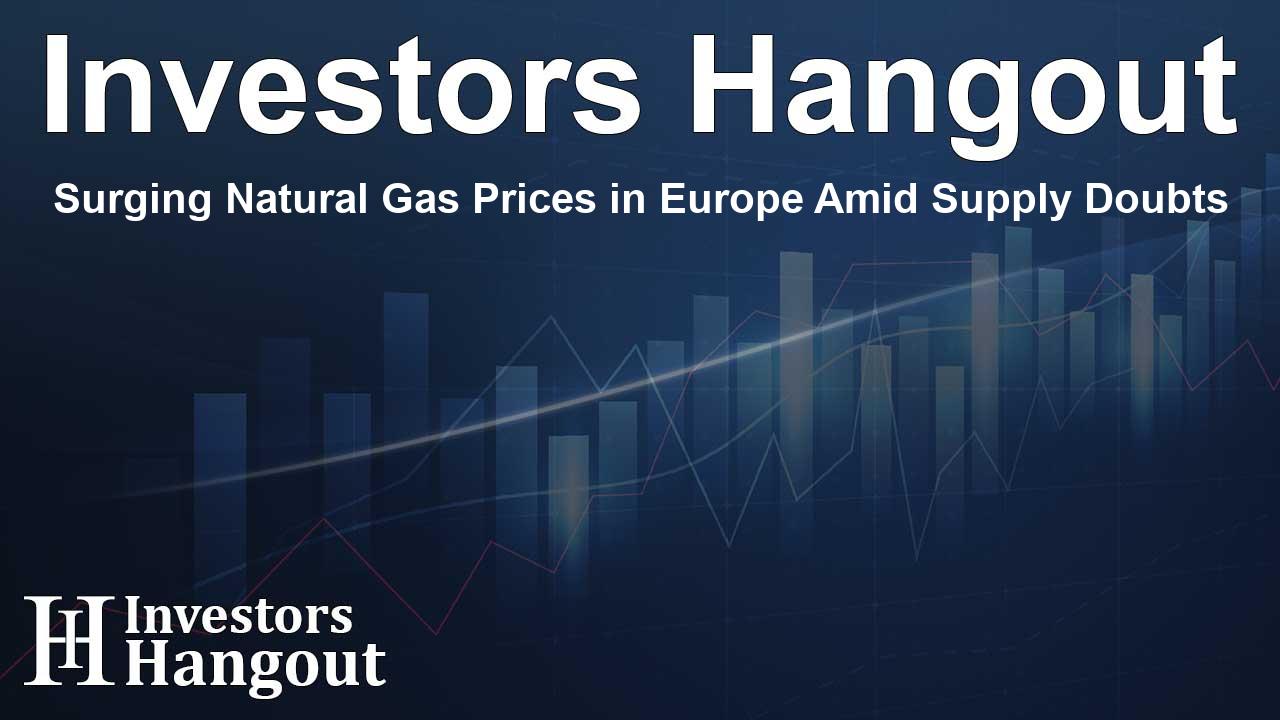Surging Natural Gas Prices in Europe Amid Supply Doubts

European Natural Gas Prices Rise Amid Supply Concerns
European natural gas prices are experiencing a notable increase, currently trading near 44 euros per megawatt hour. This surge follows a significant price jump attributed to uncertainties surrounding the future of Ukraine's gas transit routes. The volatility in this sector is drawing considerable attention from market analysts and industry leaders alike.
Current Trends in the Gas Market
The benchmark Dutch Title Transfer Facility (TTF) contract has recorded a 1.5% rise, now priced at 43.73 euros per megawatt hour. Over the past week, this contract has shown an impressive increase of over 6%, highlighting the growing tensions and concerns in the energy market.
Impending Expiration of Russian Fuel Transit Contracts
Significantly, the contract allowing for the flow of Russian gas through Ukraine is set to expire in a matter of weeks. This looming deadline has prompted European leaders to explore potential alternatives for ensuring the continuity of gas supplies. The urgency of this issue cannot be overstated, as the need for a stable energy supply remains a top priority for many European countries.
Growing Demand and Inventory Challenges
In parallel to these rising prices, Europe is witnessing a considerable increase in gas demand. This surge in demand is leading to a rapid decline in gas inventories, further contributing to the upward pressure on prices. The balancing act for European nations is now to manage this demand while ensuring sufficient supply reserves are maintained.
Shifts in Import Trends
Interestingly, exports of pipeline gas from Norway have revealed a downward trend compared to last year. While there has been a slight uptick in liquefied natural gas (LNG) imports, they still fall short of the robust figures seen in the past two years. Navigating this shifting landscape is essential for Europe as it seeks to bolster its energy security.
Conclusion
The situation in the natural gas market is dynamic, driven by factors such as geopolitical tensions, fluctuating demand, and changing import trends. As Europe grapples with these challenges, stakeholders are closely monitoring developments to identify strategies for ensuring energy stability.
Frequently Asked Questions
What is causing the rise in natural gas prices in Europe?
The rise in prices is due to uncertainties related to Ukraine's gas transit route, alongside increasing demand and decreasing gas inventories.
How much has the Dutch TTF contract increased recently?
The Dutch TTF contract has increased approximately 1.5% recently, with an overall rise of over 6% week-on-week.
What are the implications of the Russian gas flow contract expiration?
The expiration of the Russian gas flow contract presents significant challenges, prompting European leaders to seek alternative energy supply sources.
How are LNG imports trending in Europe?
LNG imports have seen a slight increase; however, they remain below the levels experienced in the previous two years.
What challenges do European countries face in managing gas supply?
European nations are currently challenged by growing gas demand, rapid inventory depletion, and the need to secure stable energy sources.
About Investors Hangout
Investors Hangout is a leading online stock forum for financial discussion and learning, offering a wide range of free tools and resources. It draws in traders of all levels, who exchange market knowledge, investigate trading tactics, and keep an eye on industry developments in real time. Featuring financial articles, stock message boards, quotes, charts, company profiles, and live news updates. Through cooperative learning and a wealth of informational resources, it helps users from novices creating their first portfolios to experts honing their techniques. Join Investors Hangout today: https://investorshangout.com/
Disclaimer: The content of this article is solely for general informational purposes only; it does not represent legal, financial, or investment advice. Investors Hangout does not offer financial advice; the author is not a licensed financial advisor. Consult a qualified advisor before making any financial or investment decisions based on this article. The author's interpretation of publicly available data shapes the opinions presented here; as a result, they should not be taken as advice to purchase, sell, or hold any securities mentioned or any other investments. The author does not guarantee the accuracy, completeness, or timeliness of any material, providing it "as is." Information and market conditions may change; past performance is not indicative of future outcomes. If any of the material offered here is inaccurate, please contact us for corrections.